Nutan the poet
Publié le 21 Février 2020
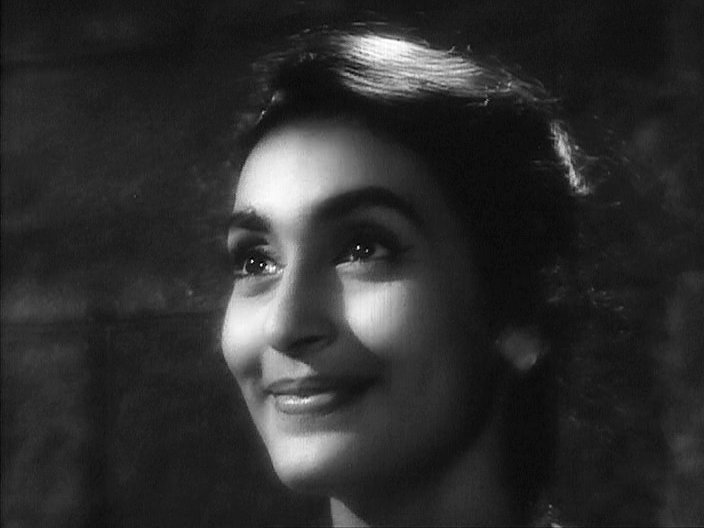
Nutan, who loved bhajans and classical music, has written some poetry, of which I have collected a little over the years. Given her talent and the quality of what I present here, there must be much more, so I went to Lalitha Tamhane's book on Nutan Asen me, Nasen me, and there are indeed a few passages which explain her interest in poetry: "She knew many ‘Ukhane’ (In a typical Maharashtrian traditional marriage the groom as well as the bride express each others’ names through these couplets) by heart. Just provide two names and surnames to Nutantai and she would come up with first class ‘Ukhane’. She was trained in music as well as dance at a young age. Later in the following years she would set her poems to tunes and would sing them. "
In the chapter of her book entitled In search of a perfect life", Lalitha writes:
"There are moments that belong just to her. Meant only for herself. Those moments are not bound by timing. At that moment nobody has a place in this world of emotions created by her. Her husband and her son are around her, yet she is all alone. Trying to discover herself by getting lost in her own existence, in all sincerity. Without her realizing it, these efforts get crystallized in the form of words appearing on the paper. Gradually take the form of a poem and hide themselves in the notebook along with her. Away from the practical world, far away!
Darpan dekhun to man yeh kare
Main sunder ban jaun
Koi pooche mose roop ho kaisa
Zoomake tan man gaoon
Mohe roop Hari ka de de
(When I look at the mirror my mind says "Wish I become beautiful”
If someone asks me what kind of looks I want…
My mind and body dances and says give me the looks of Hari)
She hums the poem without even realizing it, the poem becomes a song. She, who is lost in the suras is not aware of the reality. Her mind has already travelled into the past, crossing the boundaries of youth, right there in her childhood!"
At the end of this chapter, she reflects on "Nutan the poet":
"Nutan the poet: this face is not known to many. The soft, sensitive poet called Nutan was far more beautiful. This poet would constantly observe the world with a keen eye. She used to make an effort to capture the life experience in words. In these efforts subconsciously she used to dwell in the spiritual world. (...) Perhaps at that time she hardly had any connection to the practical world. At that time there was awareness of just that ‘moment’. Because she used to own just that moment. That moment used to exist only for her. That moment she used to write in her notebook of poems.
Man ke sukh sagar me
Mai doob ke so jaun
Sapna bhaye jag sara
Om mai ho jaun
(In the ocean of happiness , I go to sleep ; Dream dream world ; ॐ i am)
So she had a notebook with poems: I wonder if one day it would get published? It seems that Lalitha has it because Gautam Rajadhyaksha mentions Nutan gave her "her poems"...
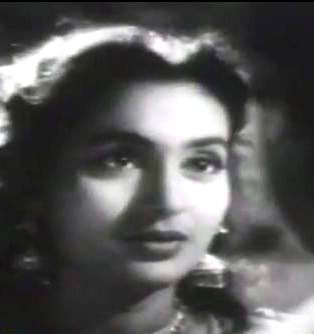
Well, so far, what we can say is that Nutan had explored the spiritual world where music, divinity and beauty all partake in one cosmic whirl, and she probably felt herself called to plunge into this whirl and transform it into a dance of her life, as testifies the mystical poem above in which the question of her looks become a way for the deity (Hari / Vishnu) to enchant her. She knows our soul is a fragment of the universal and eternal Godhead, that we are within its presence and can become at one with it if we let go of what stops us. Poetry functions as such a gate to the world of love joy and peace: it is ours to push open and walk past!
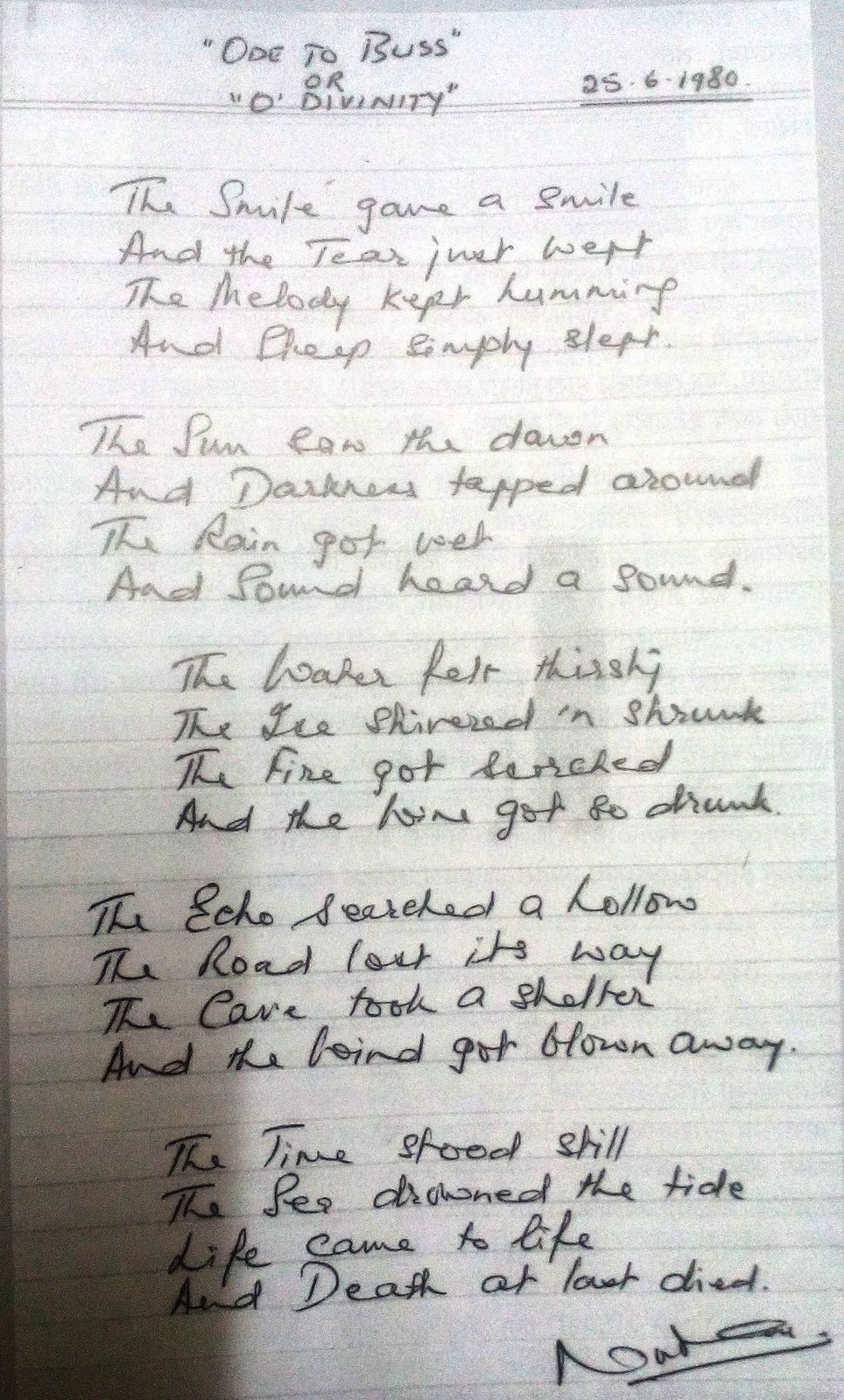
This poem is called "Ode to Bliss". I do not know if it was composed, as it seems, directly in English. What's good about it is both its simplicity and its inventivity. Its main idea is the transfer of agency from actions to principles : a smile can only smile if you allow it to become an agent, with a will, a temporality, and a freedom to act and do something. But what's nice is that these agents only do what their essence makes them do... or not, and here's the fun and talent of this poem: yes, the tear weeps and sleep "simply sleeps" (beautiful simplicity!), but only through poetic association does "darkness tap around", like the rain which it announces in the following line. Then you have the reversal of roles, cleverly suggestive of another perspective of reality (which is precisely what poetry makes us contemplate): the Sun sees the dawn, and the rain gets wet - the sheer "impossibility" of these reversals is what makes them so pleasant. In fact, they are possible, since the poet has made them so; they are possible because somewhere in the "rainness" of rain, there is wetness, and somewhere in the idea of the sun, dawn is always a potential. But it took the poet's intuition to see and voice these potentials, and make them real. Real and yet unreal, logical and illogical: isn't this gorgeous?
The next verse, starting with "the water felt thirsty" works on the principle of applying to the agents or causes the consequences which they would normally cause. Why would the water feel thirsty? Perhaps because its essence is to quench, to give the joy of quenching thirst, and (therefore) not to receive this joy. In the same way, God cannot but give, but yearns at receiving the godly gifts it gives to all but himself. So the poet, making water feel thirsty, makes the quencher of desire desire its heavenly gift, and thus makes the godhead more pathetically close to us in this way. I do not know for Hinduism, but in Christianity, this is the path of Creation and then of Incarnation: God does not and cannot remain alone within himself. Yes, he comforts and brings solace, he loves and pities, but he too is paradoxically in need of these loving demonstrations; he too needs another to bathe him in the water of love; he too thirsts after a desire which can hope for, and be fulfilled by, another's love.
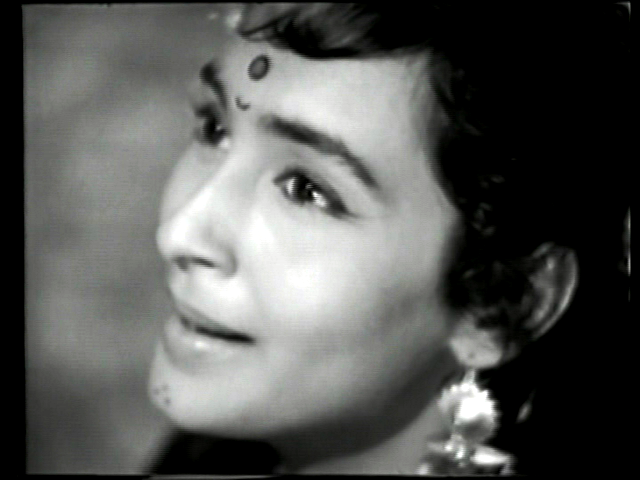
If the ice "shivered and shrunk", isn't it because we hate it, and reject it in our horror and repulsion? It seems so fitting that the agent of all coldness and unfeelingness should for once suffer what it makes us suffer! Perhaps this is where the "bliss" of the poem is to be found: that these agents should for once get what they give, or be be deprived of what they take away. That they should know what they enable, and taste the effects they cause. A form of justice would for once have been achieved, if only in poetry. In the next verse, Nutan's wizardy flouncing of rules makes the Echo search a hollow and the road lose its way... How can one not smile at seeing these gates open to one's wandering imagination? I think this is really what poetry, at its best, can do: give us a sense of that glorious freedom and playful permissivity which brings us back to our childhood innocence, when the glee of possibilities, the fun of invention made everything seem real and our own. I think indeed that my caves need a shelter, and I would love my wind to be blown away!
The end of the poem is a victory cry for life and joy, for hope and peace: "death at last died" - as if this was what we were hoping for all along, as if the glorification of life and truth and beauty knew it was immortal, but still feared its ending, still half wondered if it finally wouldn't lose to nothingness. But no, Death at last dies: life will win. "Life came to life": what a wonderful line, not only because it isn't what we expected (we should have had something like "life lived itself") and so it creates a surprise, but because it carries with it all the promises of emergence and creativity made visible before our very eyes. "Life came to life" - there is a resurrection here, an inner power which, even though death exists and cannot fully be suppressed, and testifies that life is stronger and will out. If life comes to life, then it will always win, because it contains its own immortality, its own seed for a new start, its own self-realization.
Before we look at another poem in more depth, let's not forget that this aspect of Nutan's art, poetry, has always been around, ever since she was a girl, as testified by her brother Jaideep: "I was younger than Tai by almost 13 years. She used to call me as 'Jugan'. She had come up with a funny poem on my eyes. My eyes are slightly 'pingat' (marathi word) meaning light eyes with brownish color. Of course at that time I didn’t know this. 'Does anyone have eyes that penetrate and enter the heart? Yes yes my brother has, yes yes my sisters brother has the eyes.' And then this kind of teasing would continue. We used to have lots of fun then!"
So writing poems, either for fun or more seriously, has been part of herself as a person.
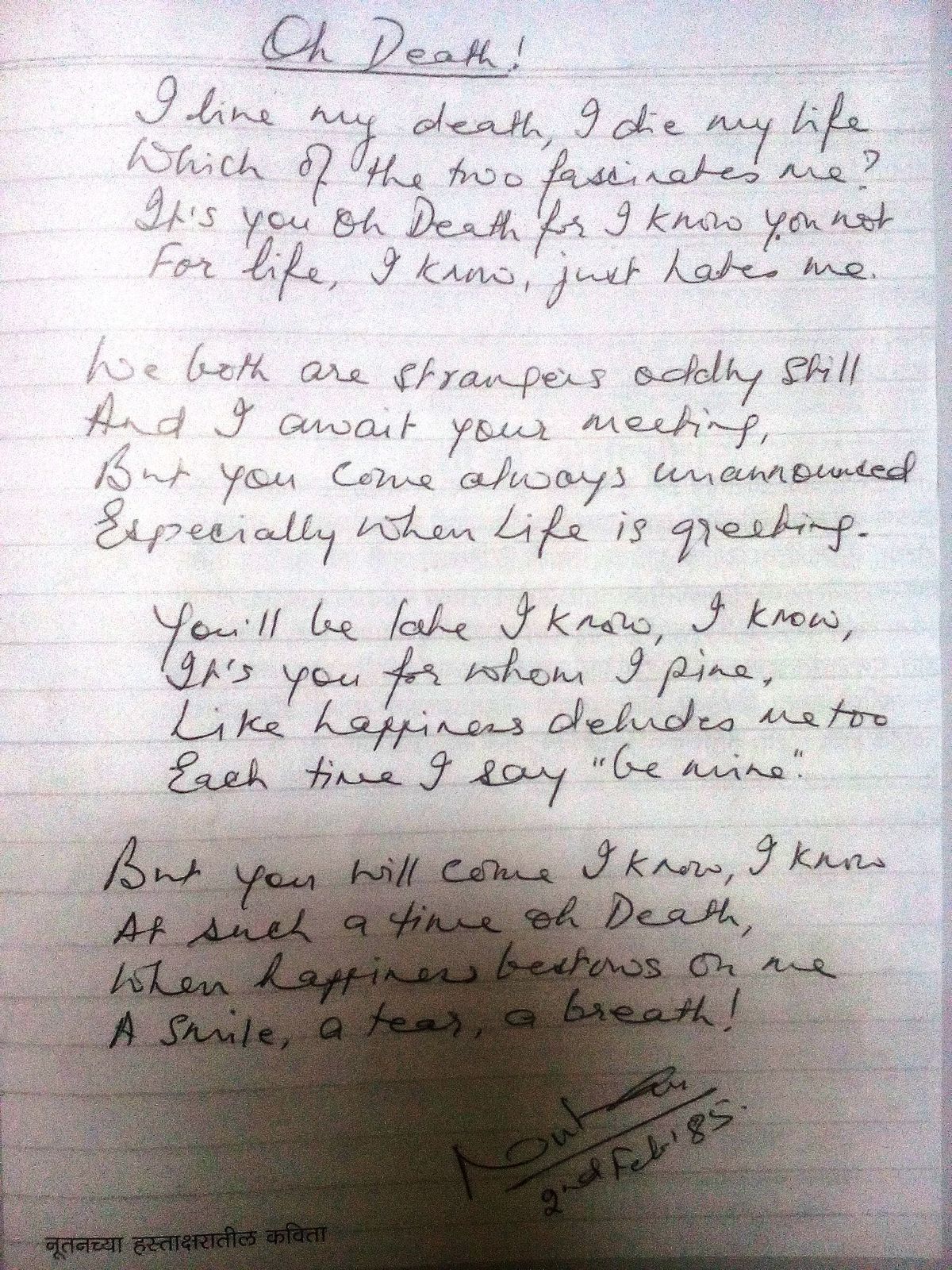
Another example of Nutan's talent is to be found in this poem "Oh Death!" Personifications of such forces as death are a very common process in literature. But the interest of this trial comes from its purposeful connection with the poet's own case. 2nd February 1985: she still had 6 years to live, and one cannot but think how much she must have felt the urge to live and yet prepare for what was coming. The ominous, twice repeated "I know, I know" signals that for her, doom wasn't far, and that she was dreadfully conscious of it. And the exclamation "Oh Death!": as if she was speaking to a person whose decision she could change, by throwing in all the weight of her experience, of her anger, and her determination! You can feel the biting strength with which she was bracing herself when she says "For life, I know, just hates me" - One must pause here: did Life, the life she had celebrated as so friendly and blissful, so filled and glorious, so close and warm and bursting, did Life hate her? Did life refuse her? Could this have meant more than "I am sick, I am dying"? I believe she was angry, and desperate and was lashing out against what she couldn't stop. But you can't exclude a fiercer, more desperate enmity too. And I wonder whether one cannot feel this in this song, written, I am told, by Nutan, for the film Mayuri (1983):
My life - an icy stream, sluggish, sluggish unable to flow
Who knows where lies the shore, where lies the shore, my life.
I am young at heart, I have a young mind, just take a look at me.
The body is young. Oh, just you take a “kush” (puff) (like that of a hookah).
This is the strength of life. I am young at heart.
What kind of a silence is this? Strange is this emptiness/solitude,
The heart is full of loneliness and the mind feels as though saturated.
Meeting you o my loved one, the heart is lost somewhere.
You should not remain "you", neither me remain 'me'
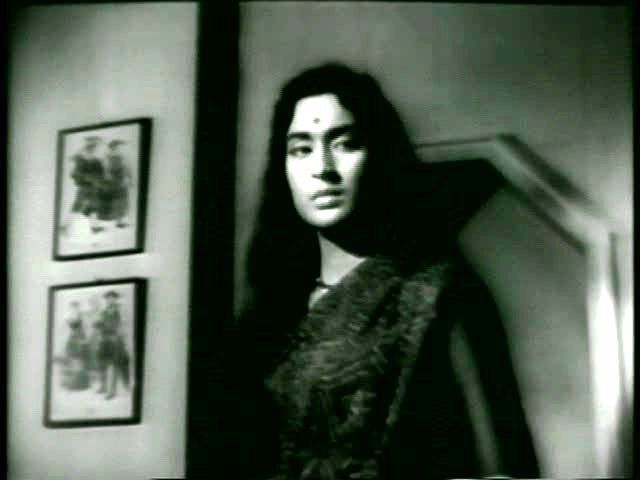
I don't know which context this song has in the film, nor whether it is suitable to place it parallel to the poem we are discussing. But you will agree with me it does somehow strike a chord which we find in the "Oh Death!" poem. The evocation of this icy, sluggish life, without a shore, and then the silence and the emptiness... Well, let's not insist because after all this is only a movie song, even if it was written by Nutan, and let's turn back to the poem. The fascination which she writes about at the beginning creates the shuddering effect which amplifies the oxymoronic opening - it does seem that she wishes to encounter this sombre companion whom she is anyway bound to meet. Wishing death to come faster because one is afraid of it: so common yet so poignant, in one who (on the surface at least) had every reason to be content ! Let's note how strongly the speaker still tries to connect with life and happiness, but lucidly and tragically acknowledges the necessity of the grim future awaiting her:
But you will come, I know, I know,
At such a time, Oh Death,
When happiness bestows on me,
A smile, a tear, a breath!
Nutan's last breath was 29 years ago.
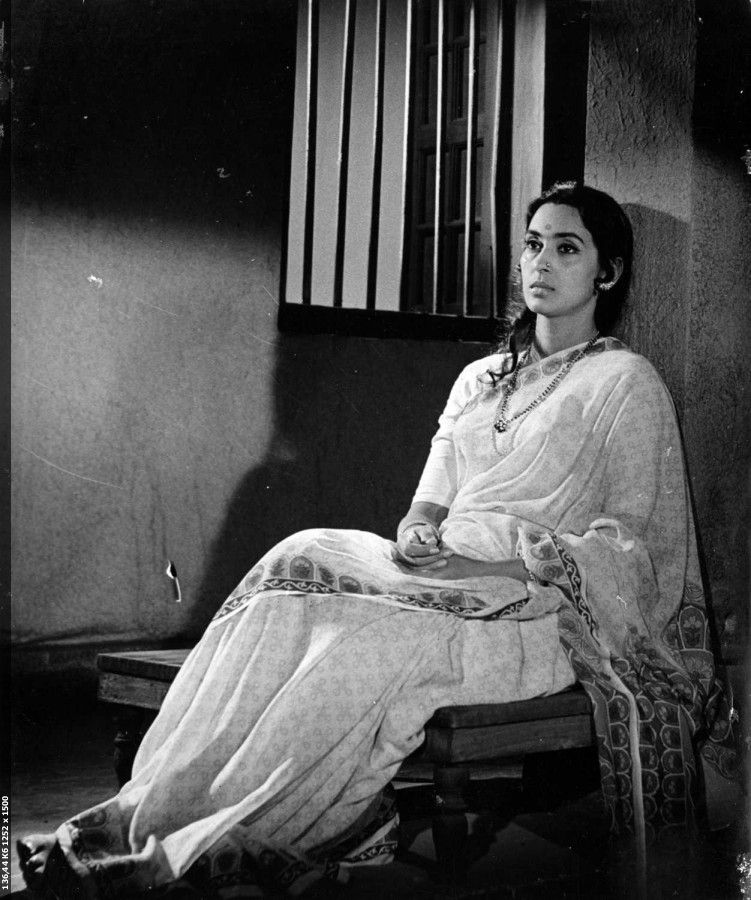
/image%2F1489169%2F20200220%2Fob_9722d6_banner-11.JPG)